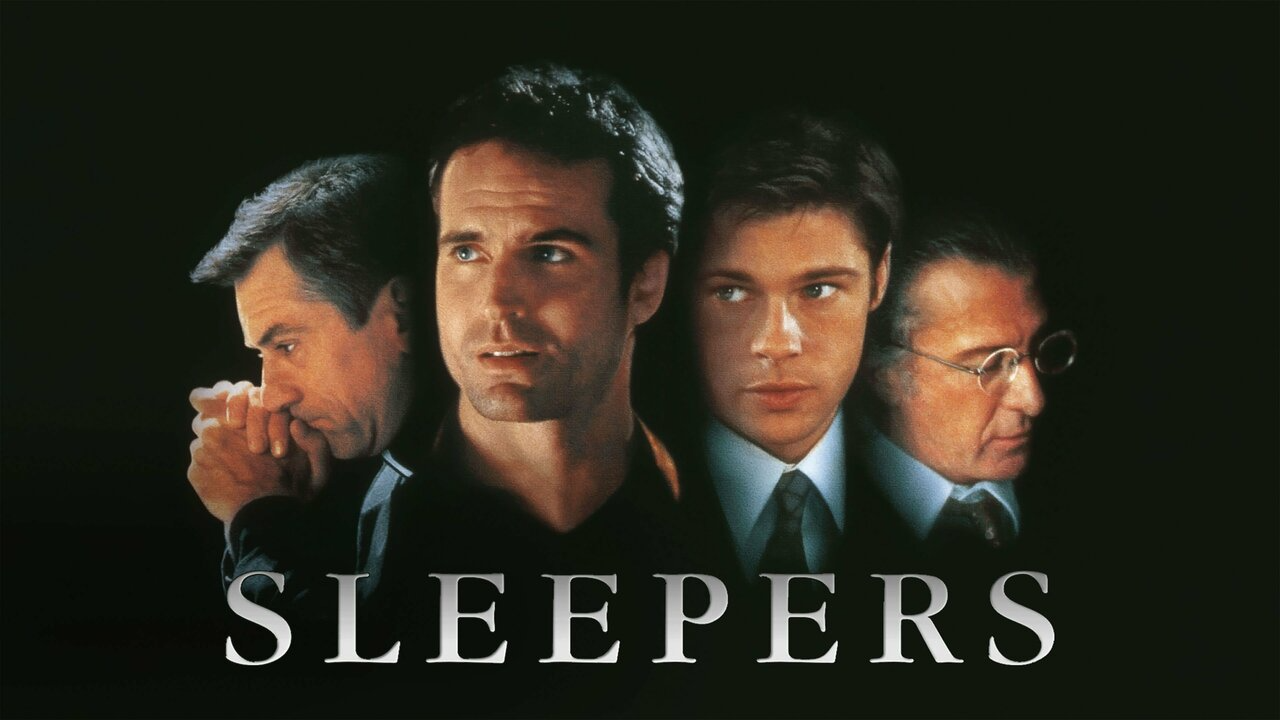
Sleepers (1996), directed by Barry Levinson, is a haunting and emotionally charged crime drama that examines the long-term consequences of trauma, the bonds of friendship, and the elusive nature of justice. Adapted from Lorenzo Carcaterra’s controversial novel, the film weaves a complex tale that spans decades, from the gritty streets of 1960s Hell’s Kitchen to the cold, strategic courtrooms of the 1980s.
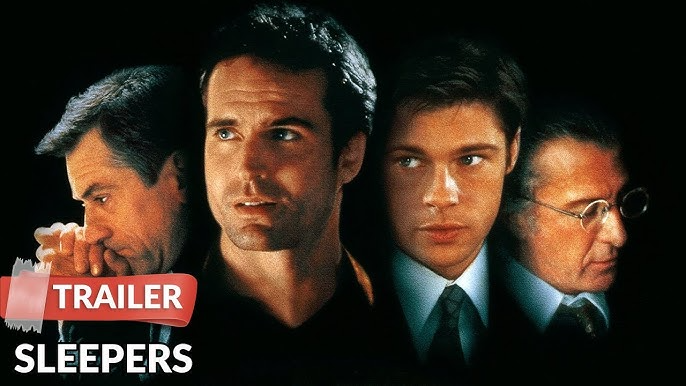
🧒🏽 The Tragedy of Youth
At the heart of Sleepers are four childhood friends—Shakes (played as an adult by Jason Patric), Michael (Brad Pitt), Tommy (Billy Crudup), and John (Ron Eldard). As boys, they grow up navigating poverty, loyalty, and mischief in a tight-knit but tough New York neighborhood under the moral watch of Father Bobby (Robert De Niro), a compassionate priest.
Their world shatters after a prank involving a stolen hot dog cart goes horribly wrong, resulting in the near-death of a man. The boys are sent to the Wilkinson Home for Boys, a juvenile detention center that turns out to be a house of horror. There, they are subjected to systematic abuse and sexual assault by the guards—most notably Sean Nokes, chillingly portrayed by Kevin Bacon.
The experience scars them permanently. The boys leave Wilkinson damaged in different ways—physically, emotionally, and psychologically. And the shame of what happened remains buried… until fate offers a chance at reckoning.
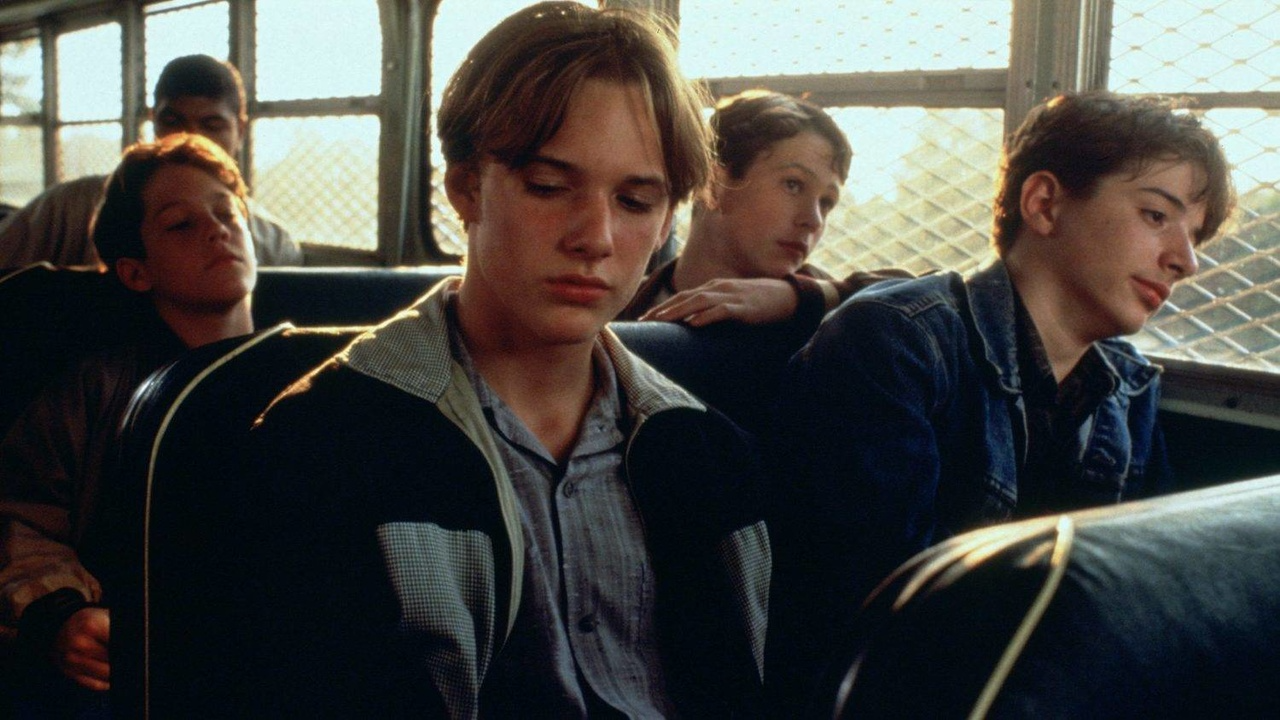
🔥 Revenge and Redemption
More than a decade later, Tommy and John—now hardened and morally adrift—spot Nokes in a bar. In a moment of explosive retribution, they gun him down in broad daylight. Their arrest kicks off the film’s second act, where the trauma of the past is confronted head-on in the courtroom.
Michael, now an assistant district attorney, seizes the chance to secretly orchestrate a trial that’s actually a cover for revenge. With help from Shakes, now a journalist, and a reluctant but pivotal Father Bobby, Michael bends the rules of justice. He throws the trial, using clever tactics to get his friends acquitted—while revealing, without directly accusing, the horrors of their youth.
The brilliance of this setup is that the real story unfolds outside the courtroom—in whispered conversations, behind-the-scenes maneuvering, and moral gray areas. Justice isn’t served through the legal system, but through a carefully calculated act of moral subversion.
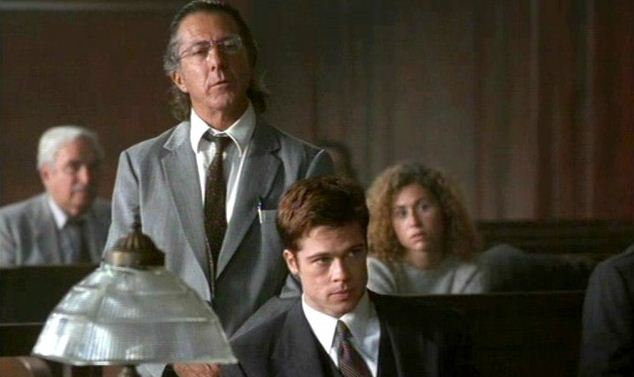
🎭 Powerhouse Performances
Brad Pitt plays against his usual charisma, portraying Michael with controlled restraint, a man driven by guilt and steely resolve.
Jason Patric brings a haunted depth to Shakes, whose internalized trauma drives his quiet intensity.
Kevin Bacon is disturbingly effective as the sadistic Nokes, imbuing the role with skin-crawling menace.
Robert De Niro, as Father Bobby, provides a steady moral center—quietly powerful in his moments of crisis and loyalty.
Dustin Hoffman adds complexity and pathos as the alcoholic defense lawyer Danny Snyder, who unexpectedly rises to the occasion.
The ensemble is what gives Sleepers its emotional weight, with each performance contributing to the film’s aching sense of justice deferred.
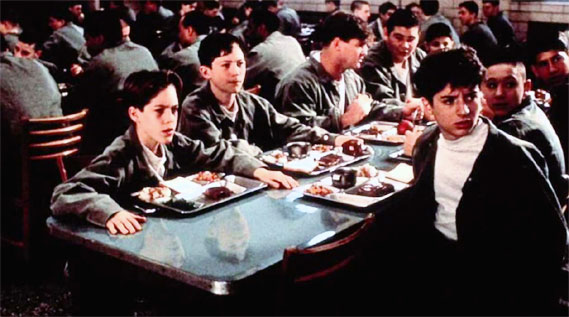
⚖️ Themes & Questions
Sleepers is not a straightforward tale of revenge—it’s a meditation on how trauma warps time, morality, and identity. The film asks:
Can true justice ever be achieved within a flawed legal system?
What happens to children who are betrayed by those meant to protect them?
When the system fails, is vigilante justice acceptable?
Can friendship and loyalty redeem the past—or do they merely mask deeper wounds?
It’s also a film about silence—the kind that protects abusers and the kind that binds survivors together.
📚 Fact or Fiction?
The film is “based on a true story,” according to Carcaterra’s novel—but this claim has been widely disputed. Investigative journalists and legal records have found no evidence of the case or the trial described. Whether or not the events actually occurred, the emotional truth of Sleepers—the pain of abuse, the thirst for justice—is what resonates.
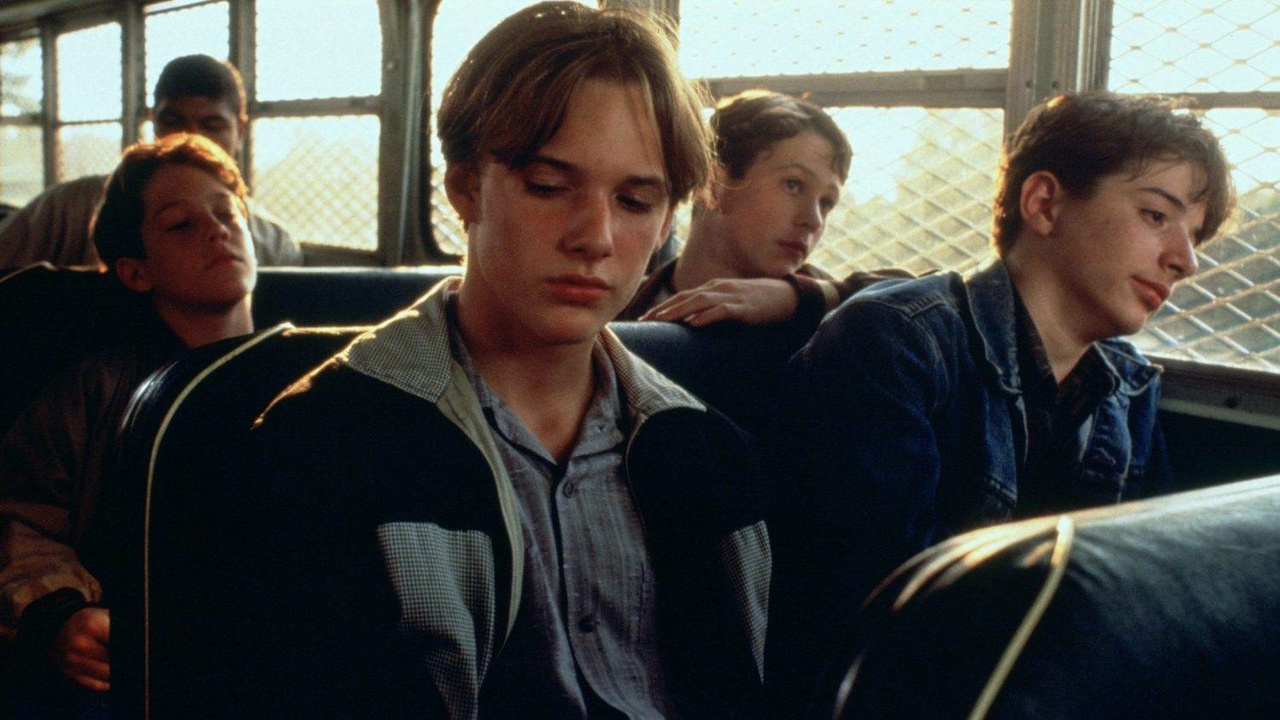
🎬 Final Thoughts
Sleepers is unsettling, powerful, and morally complex. It blends coming-of-age drama with legal thriller, and at times, revenge fantasy—but never without a sense of tragic weight. Barry Levinson’s restrained direction allows the story to breathe, while the performances drive home its heartbreaking core.
It’s not a film that offers easy answers, and it doesn’t tie its ending with a neat bow. Instead, it leaves you asking whether justice and healing are ever really possible—or if some wounds simply become part of who we are.
It lingers, uncomfortably so. And perhaps that’s its greatest strength.